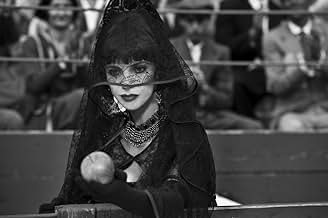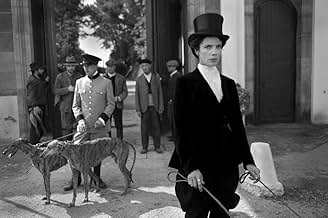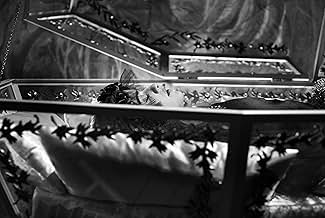Snow White and the Huntsman and Mirror Mirror were not the only two Snow White-inspired films of last year. Spanish cinema goers were treated to their very own version of the Brothers Grimm fairy tale that was directed by Pablo Berger who could have been inspired by the success of the French-American silent film, The Artist, as his version of the tale is also a silent one.
Shot in glorious black-and-white (as was The Artist), the film looks and feels like an actual film from the silent era. The simple style of Blancanieves hearkens back to the silent era of film and Berger has created a fanciful homage to those wonderful films of several yesteryears ago that have inspired countless filmmakers ever since.
Berger's unique vision of Snow White takes place in southern Spain in the 1920s and features actress Maribel Verdu (Pan's Labyrinth, Y Tu Mama Tambien) as this version's wicked stepmother. Verdu's Encarna loves her husband's fame and fortune (he is a paralyzed bullfighter whom she met in the hospital as his nurse) but loathes him and his daughter, Carmen. As the story goes, the young Carmen/Snow White (Macarena Garcia) flees the evil clutches of her mother and finds herself helped out along the way by a band of little people who travel the countryside and perform as a novelty act. Carmen finds a talent as a novelty, female bullfighter herself ... and her newfound fame attracts the attention and wrath of Encarna. And, well ... we know the story.
Berger has ingeniously and believable captured this tale in this setting ... and it all works. The over-the-top theatrics of the stars (over-emoting for lack of sound) is spot-on and there are no weak-links in this production. The sets and costumes are lavish. The blacks and whites are sumptuous and beautiful. By Berger choosing to incorporate some of the darker elements of a classic Grimm tale, he has made this version the most successful of last year's three Snow White re-tellings.
This is the fairest one of them all.

![Assistir a Tráiler [OV]](https://m.media-amazon.com/images/M/MV5BZDc5OTlhNjUtYzQ5Mi00NzAwLTg5MmUtYjdjNWQwNzgzN2FiXkEyXkFqcGdeQXRyYW5zY29kZS13b3JrZmxvdw@@._V1_QL75_UX500_CR0)































